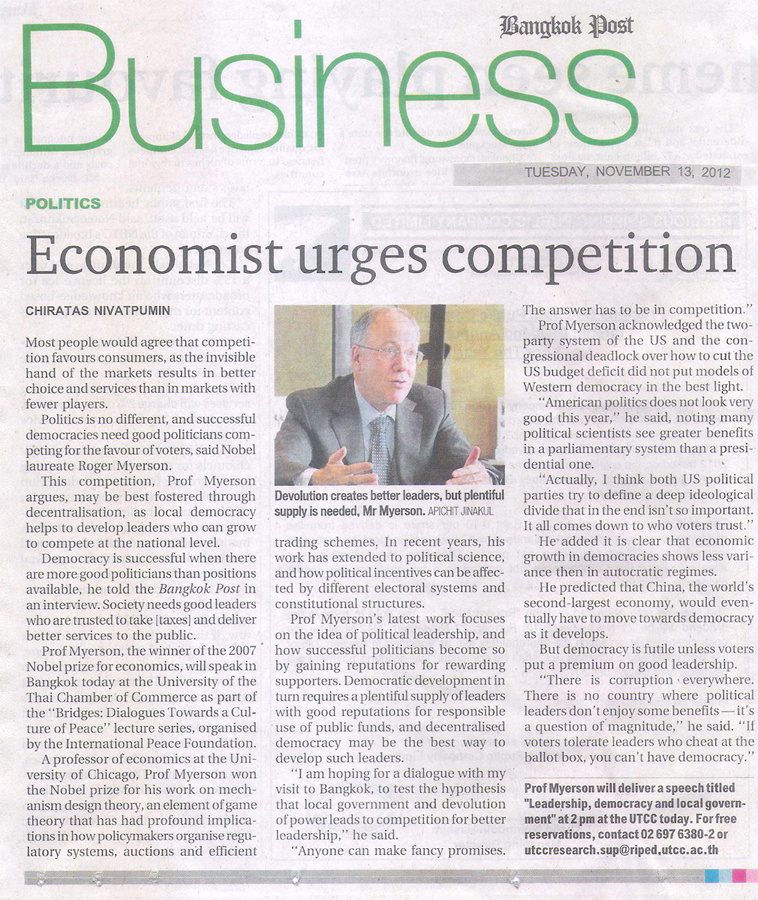|
| |
 |
|
Prof. Roger B. Myerson: An Economist urges competition
|
Bangkok Post, November 13, 2012.

Most people would afree that competition favours consumers, as the invisible hands of the markets result in better choice and services than in markets with few players. Politics is no different, and successful democracies need good politicians competing for the favor of voters, said Nobel laureate Roger Myerson.
This competition, Prof. Myerson argues, may be best fostered through decentralization, as local democracy helps to develop leaders who can grow to compete at the nation level.
Democracy is successful when there are more good politicians than positions available, he told the Bangkok Post in an interview. Society needs good leaders who are trusted to take [taxes) and deliver better services to the public.
Prof. Myerson, the winner of the 2007 Nobel prize for economics, will speak in bangkok today at the Universoty of the Thai Chamber of Commerce as part of the "Bridges: Dialogues Towards a Culture of Peace" lecture series, organized by the International Peace Foundation.
A Professor for Economics at the University of Chicago, Prof. Myerson won his Nobel prize for how work on mechanism design theory, an element of game theory that has had profound implications in how policymakers organize regulatory systems, auctions and efficient trading schemes. In recent years, his work has extended to political science, and how political incentives can be affected by different electoral systems and constitutional structures.
Prof. Myerson's latest work focuses on the idea of political leadership, and how successful politicians become so by gaining reputations for rewarding supporters. Democratic development in turn requires a plentiful supply of leaders with good reputations for responsible use of public funds, and decentralized democracy may be the best way to develop such leaders.
"I am hoping for a dialogue with my visits to Bangkok, to test the hypothesis that local government and devolution of owed leads to competition for better leadership," he said.
"Anyone can make fancy promises. The answer has to be in competition."
Prof. Myerson acknowledged the two-party system of the US and the congressional deadlock over how to cut the US budget deficit did not put models of Western democracy in the best light.
"American politics does not look very good this year," he said, noting many political scientist see greater benefits in a parliamentary system than a presidential one.
"Actually, I think both US political parties try to define a deep ideological divide that in the end isn't so important. It all comes down to who voters trust."
He added it is clear that economic growth in democracies shows less variance than in autocratic regimes. He predicted that China, the world's second-largest economy, would eventually have to move towards democracy as it develops.
But democracy is futile unless voters put a premium on good leadership.
"There is corruption everywhere. There is no country where political leaders don't enjoy some benefits - it's a question of magnitude," he said. "If voters tolerate leaders who cheat at the ballot box, you can't have democracy."
|
|
|
